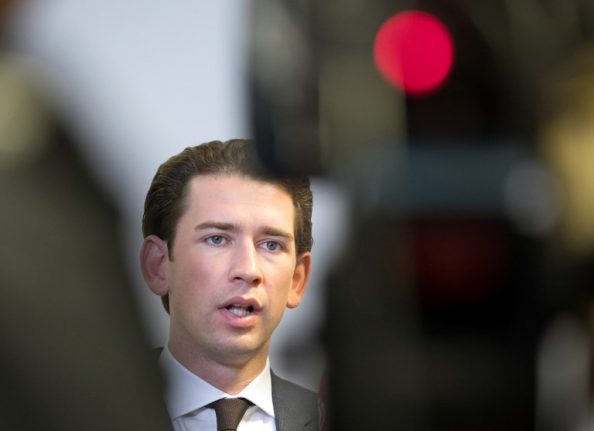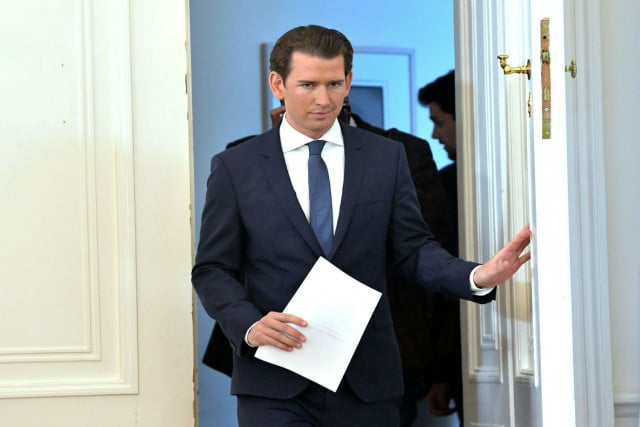The conservative chancellor, 31, invited the FPÖ (Freedom Party) for talks, paving the way for the party to return to power nearly two decades after it last entered government in 2000.
“We have accepted this invitation,” said FPÖ leader Heinz-Christian Strache. His party came third in elections on October 15th.
The last time the FPÖentered government Austria was ostracised in Europe. Its then leader Joerg Haider praised Hitler's “orderly” employment policies.
But such a backlash is not expected this time. The FPÖ — founded by ex-Nazis after World War II — has sought to soften its image.
Its recent rise has mirrored that of other populist parties in Europe.
'Stable government' wanted
Kurz earlier said that “very constructive” preliminary talks had already been held between his People's Party (ÖVP) and the FPÖ.
He said he hoped an agreement would be reached by Christmas.
“Austria deserves to have a stable government formed quickly,” he said.
Kurz, nicknamed “wunderwuzzi” (“whizz-kid”), took over the conservative ÖVP in May. He attracted supporters by depicting himself as a breath of fresh air, talking tough on immigration and vowing to slash taxes and red tape.
The ÖVP won 31.5 percent of the vote, followed by the centre-left Social Democrats on 26.9 percent. Their leader Christian Kern is preparing his party to lead the opposition.
The FPÖ, which has long been critical of the European Union, came a close third with 26.0 percent, just short of its 1999 record of 26.9 percent under Haider.
'Sushi coalition'
Kurz, who is set to become the world's youngest leader, on Tuesday insisted a “clear pro-Europe orientation” was a prerequisite for entering a coalition with his party.
He said last week he expected Austria to play an “active” role in the EU, but Strache did not immediately address those comments.
The FPÖ is demanding increased border security, Swiss-style direct democracy and economic reforms.
Its leaders have also said Islam “has no place” in Austria.
After he dined in Strache's home following his electoral victory, Austria dubbed Kurz's ties with the FPÖ leader the “sushi coalition”.
“We agree on some points and disagree on others,” Kurz said on Tuesday, without elaborating.
Last week he vowed “zero tolerance” on anti-Semitism in any future government.
Israel ties
Israel temporarily withdrew its ambassador to Austria in 2000 over Haider's praise of Hitler and SS veterans.
Relations with Israel were normalised in 2003 under prime minister Ariel Sharon.
Strache, who has headed the FPÖ since 2005, has moved to soften the party's image and improve relations with the Jewish state.
Strache, 48, has visited Israel several times, the last time in April 2016 when he met members of Prime Minister Benjamin Netanyahu's government and laid a wreath at the Holocaust memorial Yad Vashem.
Israel's foreign ministry stressed at the time that it was a “strictly private visit” that included no official meetings.



 Please whitelist us to continue reading.
Please whitelist us to continue reading.